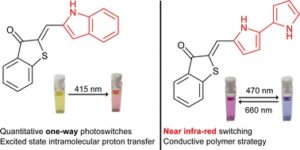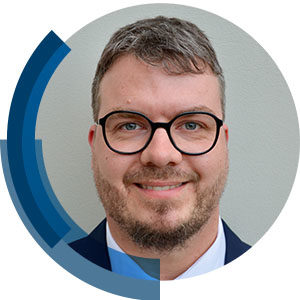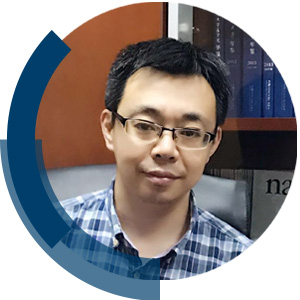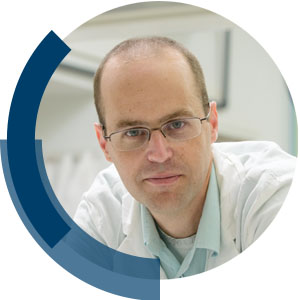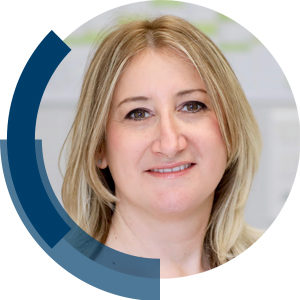Congratulations to Professor Luca Laraia, recipient of the 2024 RSC Medicinal Chemistry Emerging Investigator Lectureship.
 The annual RSC Medicinal Chemistry Emerging Investigator Lectureship recognises a researcher who has made a significant contribution to medicinal chemistry and drug discovery in their independent academic career, and is open to candidates who received their PhD within the last 10 years. The RSC Medicinal Chemistry Editorial Board have selected Prof Laraia, from the the Technical University of Denmark, as the winner this year. Prof Laraia’s research focuses on the chemical biology of sterol-mediated processes, developing small molecule and protein regulators of cholesterol biosynthesis, metabolism and trafficking, with applications in a range of diseases.
The annual RSC Medicinal Chemistry Emerging Investigator Lectureship recognises a researcher who has made a significant contribution to medicinal chemistry and drug discovery in their independent academic career, and is open to candidates who received their PhD within the last 10 years. The RSC Medicinal Chemistry Editorial Board have selected Prof Laraia, from the the Technical University of Denmark, as the winner this year. Prof Laraia’s research focuses on the chemical biology of sterol-mediated processes, developing small molecule and protein regulators of cholesterol biosynthesis, metabolism and trafficking, with applications in a range of diseases.
“I am delighted to receive the RSC Medicinal Chemistry Emerging Investigator Lectureship. This is a fantastic recognition of the multidisciplinary work that characterises medicinal chemistry, carried out by our talented group members over the last few years. I am excited to continue to carry out and highlight our work on targeting sterol-mediated processes.” – Prof Luca Laraia
Prof Laraia’s lectureship will be held at a conference later this year, more details to follow. To stay up to date with future announcements, follow us on X (formerly Twitter): @rsc_medchem, LinkedIn: Chemical Biology RSCChemBio and sign-up to our news alerts.
More about Luca
Luca Laraia was born in Rome (Italy) and grew up in Vienna (Austria) before moving to London for his MSci degree in chemistry at Imperial College London. He carried out a PhD in medicinal chemistry and chemical biology funded by CRUK at the University of Cambridge, in the labs of Professors David Spring and Ashok Venkitaraman. He then moved to Dortmund as an Alexander von Humboldt post-doctoral research fellow to work at the Max Planck Institute of Molecular Physiology with Professor Herbert Waldmann, before joining the Department of Chemistry at the Technical University of Denmark as an Assistant Professor. Since April 2021 he is an Associate Professor at the same department, leading a research group at the interface of chemistry and biology, focusing on the development of chemical tools and potential therapeutic leads to study and modulate lipid homeostasis. Luca is the recipient of an ERC Starting Grant (2021) and a Hallas Møller Emerging Investigator (2021) from the Novo Nordisk Foundation.
Check out Luca’s recent publications in Chemical Science and ChemComm:
|
Identification of non-conventional small molecule degraders and stabilizers of squalene synthase (Open Access) Joseph G. F. Hoock, Cecilia Rossetti, Mesut Bilgin, Laura Depta, Kasper Enemark-Rasmussen, John C. Christianson and Luca Laraia* Chem. Sci., 2023, 14, 12973-12983 |
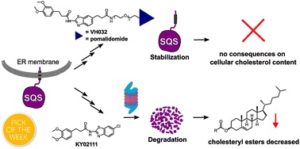 |
|
Mikkel Krell-Jørgensen, Habiburrahman Zulfikri, Magnus Grage Bonnevie, Frederik Simonsen Bro, Asmus Ougaard Dohn and Luca Laraia* Chem. Commun., 2023, 59, 563-566 |
Find out more about Luca and follow his lab’s X here at @laraialab.


